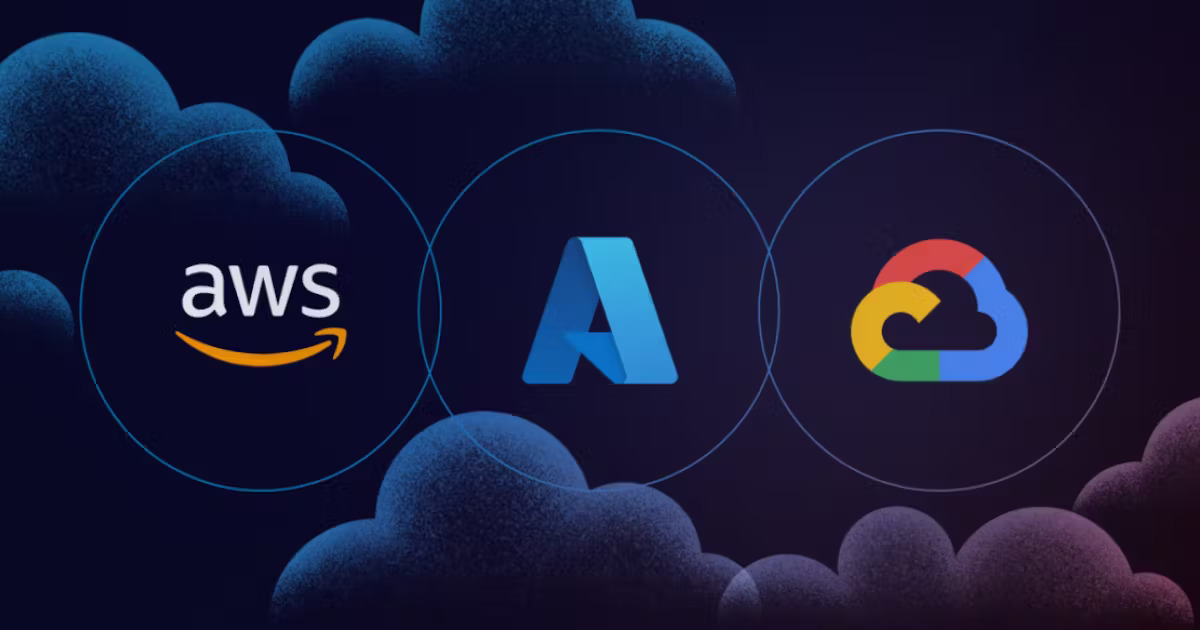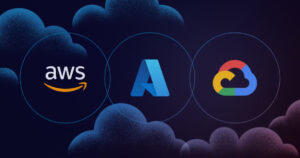Introduction
Choosing a cloud provider is a key decision for any business. The three leading options, Amazon Web Services (AWS), Microsoft Azure, and Google Cloud Platform (GCP), offer powerful tools, but each has different strengths. The right choice depends on your goals, budget, and existing systems.
This guide breaks down what each platform offers. It covers pricing, performance, and use cases to help you make an informed decision.
Market Share and Growth
As of early 2025, AWS leads the global cloud market with a 29% share, followed by Microsoft Azure at 22%, and Google Cloud at 12% . While AWS maintains the largest share, Azure and Google Cloud have shown higher year-over-year growth rates.(CRN)
AWS: Scalable and Feature-Rich
Strengths:
- Extensive service offerings across compute, storage, databases, and machine learning.
- Global infrastructure with numerous data centers.
- Strong support for startups and enterprises.
Considerations:
- Pricing can be complex, with various options and tiers.
- Some users find the learning curve steep due to the vast array of services.
Best for:
- Businesses needing a wide range of services and global reach.
- Companies looking for mature, reliable cloud solutions.
Microsoft Azure: Integrated for Microsoft Users
Strengths:
- Seamless integration with Microsoft products like Office 365 and Active Directory.
- Strong hybrid cloud capabilities, allowing integration with on-premises systems.
- Comprehensive compliance offerings for various industries.(emma – Make Cloud Work for You)
Considerations:
- May be more cost-effective for businesses already using Microsoft services.
- Some services may have regional availability limitations.
Best for:
- Organizations heavily invested in Microsoft technologies.
- Enterprises requiring hybrid cloud solutions.(Dynamics 365 Partner)
Google Cloud Platform: Data and AI Focused
Strengths:
- Advanced data analytics and machine learning tools.
- Strong performance in big data processing.
- Competitive pricing for compute-optimized instances.(Dynamics 365 Partner)
Considerations:
- Smaller market share compared to AWS and Azure.
- Fewer enterprise-focused services.
Best for:
- Companies focused on data analytics and machine learning.
- Businesses are looking for cost-effective computing resources.
Pricing Comparison
Pricing structures vary among the three providers:(Cast AI)
- AWS: Offers a pay-as-you-go model with various pricing tiers.
- Azure: Provides per-minute billing, which can be cost-effective for short-term workloads.
- Google Cloud: Known for sustained-use discounts and competitive pricing for certain instance types. (Cast AI, Dynamics 365 Partner)
It’s important to analyze your specific workload and usage patterns to determine the most cost-effective option.
Key Considerations for Your Business
When choosing a cloud provider, consider the following:
- Existing Infrastructure: Align with providers that integrate well with your current systems.
- Compliance Needs: Ensure the provider meets industry-specific compliance requirements.
- Support and Training: Evaluate the availability of support and training resources.
- Scalability: Consider how easily you can scale resources up or down.
- Global Reach: Assess the provider’s data center locations relative to your user base.
Conclusion
Selecting the right cloud provider depends on your business’s unique needs and goals. AWS offers a broad range of services suitable for various applications. Azure is ideal for businesses already using Microsoft products and seeking hybrid solutions. Google Cloud excels in data analytics and machine learning capabilities.
Evaluate your current infrastructure, compliance requirements, and future growth plans to make an informed decision.






